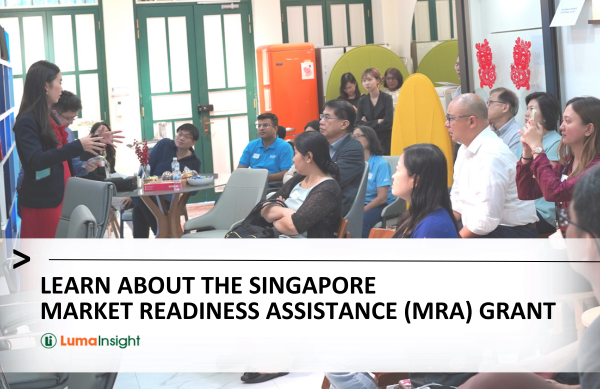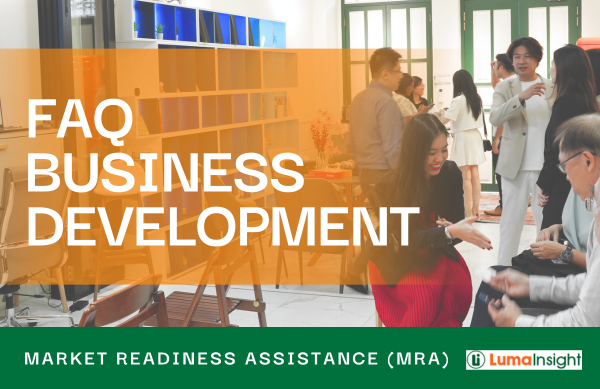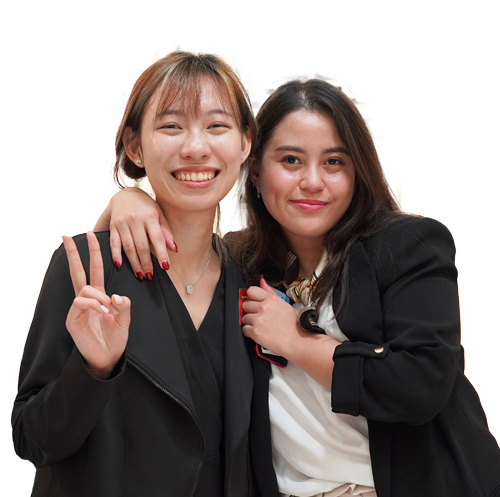Outline
As Singapore continues to establish itself as a global business hub, many enterprises are exploring opportunities for international expansion. This journey, while promising, is fraught with complexities that businesses must navigate. By leveraging strategies such as the Market Readiness Assistance (MRA) program, companies can streamline their efforts to expand into new markets and enhance their global presence. This article delves into key expansion strategies, the role of MRA, challenges faced by businesses, and the resources available for growth in the global marketplace.
Key Expansion Strategies for Businesses in Singapore
Understanding the Singaporean Business Landscape
To effectively expand internationally, businesses in Singapore must first understand the local business landscape. Singapore is characterized by its strategic location, robust infrastructure, and pro-business government policies, making it an attractive base for both startups and established companies. The diverse and vibrant economy supports a variety of sectors, including e-commerce, technology, finance, and logistics.
Businesses looking to expand should conduct thorough market research to identify trends, customer preferences, and competitive dynamics within Singapore and the broader Southeast Asian region. This foundational understanding allows companies to tailor their products and services to meet the needs of their target audience and position themselves effectively in overseas markets.
Identifying Potential Partners for Global Expansion
Successful international expansion often hinges on forming strategic partnerships. In Singapore, businesses can enhance their growth strategies by identifying potential partners who are already established in their target markets.
Collaborations with local firms can facilitate access to resources, market insights, and existing customer bases, ultimately boosting the chances of success. Networking events, trade fairs, and business forums in Singapore provide valuable avenues for companies to connect with prospective partners.
Additionally, leveraging digital marketing strategies can enhance visibility and attract potential collaborators who share a mutual interest in expanding their operations across borders.
Utilizing MRA for Market Expansion
The Market Readiness Assistance (MRA) program offers critical support for businesses in Singapore looking to expand internationally. This initiative, launched by Enterprise Singapore, provides funding and advisory services to help companies navigate the intricacies associated with market entry.
By utilizing MRA, businesses can gain insights into market conditions, refine their marketing efforts, and develop strategies to cater to local preferences. The program also aids in identifying potential partners, ensuring that businesses are well-equipped to enter new markets with confidence and efficiency.
Well, how does one utilize MRA?
Overview of Market Readiness Assistance (MRA)
The MRA program is designed to assist businesses in their journey toward international expansion by providing financial support and resources. The initiative focuses on various aspects of market entry, including market research, business development, and marketing efforts.
Companies can receive funding for activities such as attending trade shows, conducting feasibility studies, and engaging local consultants to understand the regulatory landscape.
By leveraging MRA, businesses can transform their approach to international expansion, ensuring they have the necessary tools and knowledge to succeed in the global market.
Steps to Apply for MRA Funding
Applying for Market Readiness Assistance (MRA) funding can be an effective way to support your business’s international growth. Here’s a step-by-step guide to help you navigate the application process smoothly:
1. Assess International Readiness and Set Objectives
- Evaluate your business’s readiness for international expansion, including resources, team capability, and infrastructure.
- Define clear international objectives—such as target markets, product positioning, or strategic alliances.
2. Submit an Online Application
- Visit the Enterprise Singapore website to access the MRA funding application portal.
- Complete the application form with details on your business expansion plan, including objectives, activities, and estimated budget.
3. Provide Comprehensive Documentation
- Prepare necessary documents that outline your proposed activities, such as market research reports, business forecasts, and budgets.
- Highlight the impact these activities will have on business growth, particularly in overseas markets, to strengthen your application.
4. Application Review Process
- Once submitted, expect a review phase, during which MRA representatives may contact you for further discussions.
- Refine your proposal if necessary to address any feedback or clarify your expansion goals.
5. Receive Funding for Expansion Activities
- Upon approval, successful applicants receive funding to support market entry activities like international marketing, market feasibility studies, or overseas business matching.
This funding can greatly benefit your business, empowering you to scale up operations and compete effectively in new markets. With a clear roadmap and strategic preparation, MRA funding can be an invaluable resource for achieving your global ambitions.
Success Stories of Singaporean Businesses Using MRA
Numerous Singaporean businesses have successfully leveraged MRA to facilitate their international expansion.
For instance, a technology startup utilized MRA funding to participate in overseas trade missions, leading to partnerships with key players in the Asian market. By accessing market insights and local networks, the startup was able to adapt its products and services to better fit the needs of overseas customers.
Such use cases highlight the transformative power of MRA, enabling businesses to position themselves competitively in the global landscape.
Challenges of Scaling a Business Globally from Singapore
Adapting Products or Services for New Markets
Adapting products and services for new markets is another critical challenge that Singaporean businesses must address during international expansion. Consumer preferences, cultural nuances, and purchasing behaviors can vary significantly across regions.
Companies should invest in market research to identify these differences and adjust their offerings accordingly.
This may involve altering product features, packaging, or marketing strategies to resonate with local customers. By doing so, businesses can enhance their customer base and ensure a successful market entry.
Data-Driven Strategies for Market Expansion in Singapore
The Role of Data Analytics in Identifying New Markets
Data analytics plays a pivotal role in identifying new markets and informing expansion strategies for businesses in Singapore. By analyzing market trends, consumer behavior, and competitive landscapes, companies can uncover opportunities for growth. Utilizing advanced analytics tools enables businesses to gain insights into potential markets, understand customer preferences, and assess the viability of their products and services. This data-driven approach not only enhances decision-making but also empowers businesses to streamline their efforts and maximize efficiency during the expansion process.
Using Scorecards to Measure Expansion Success
Implementing scorecards can provide businesses with a structured framework for measuring the success of their international expansion efforts.
By establishing key performance indicators (KPIs) relevant to market entry and growth, companies can track their progress and identify areas for improvement. These scorecards can encompass various metrics, such as sales growth, market share, and customer acquisition costs.
Regularly reviewing performance against these benchmarks allows businesses to pivot their strategies as needed, ensuring they remain competitive in the global market.
Resources are Available for Singaporean Businesses’ Global Expansion
Government Initiatives Supporting International Growth
The Singaporean government offers various initiatives to support businesses aiming for international growth. Programs such as the MRA, as previously discussed, provide financial assistance and advisory services.
Additionally, the Global Innovation Alliance (GIA) promotes collaboration between Singaporean startups and overseas partners, facilitating access to new markets.
These initiatives are designed to empower businesses in Singapore to explore global opportunities, equipping them with the necessary resources to succeed.
Networking Opportunities for Singaporean Businesses
Networking is an invaluable resource for businesses looking to expand internationally. In Singapore, numerous organizations and chambers of commerce provide platforms for companies to connect with industry peers, potential partners, and investors.
Participating in networking events, workshops, and seminars can help businesses build relationships that are crucial for successful market entry.
Furthermore, these interactions can provide valuable insights into best practices and strategies employed by other companies in similar fields.
Leveraging Technology for Seamless Global Operations
In today’s digital age, leveraging technology is essential for businesses looking to operate globally. E-commerce platforms, customer relationship management (CRM) systems, and digital marketing tools enable companies to enhance their reach and streamline operations.
By adopting these technologies, businesses can improve their efficiency, automate processes, and deliver a seamless experience to customers across different regions. This technological integration not only simplifies market access but also positions businesses competitively in the global landscape.
Conclusion
Expanding internationally from Singapore offers substantial growth potential, yet requires businesses to skillfully navigate regulatory, operational, and cultural challenges. By utilizing strategies such as the Market Readiness Assistance (MRA) program, leveraging data-driven approaches, and forming strategic partnerships, Singaporean businesses can position themselves for sustainable global success. The right resources, government initiatives, and technology tools can significantly ease the expansion process, empowering companies to achieve a competitive edge in new markets.
The MRA program is a government initiative by Enterprise Singapore that provides funding and advisory support to businesses planning international expansion. It helps companies with market research, business development, and regulatory understanding.
Strategic partnerships enable businesses to access local resources, customer bases, and market insights in new regions, which can simplify entry and increase the chances of success.
Data analytics allows businesses to identify growth opportunities, analyze customer preferences, and optimize marketing strategies, making expansion efforts more efficient and effective.
Key challenges include managing regulatory compliance across borders, navigating diverse trade policies, adapting supply chain operations, and understanding regional consumer preferences.
Besides MRA, the Singaporean government offers the Global Innovation Alliance (GIA) to connect businesses with overseas partners, along with networking events and technology platforms to streamline global operations.



